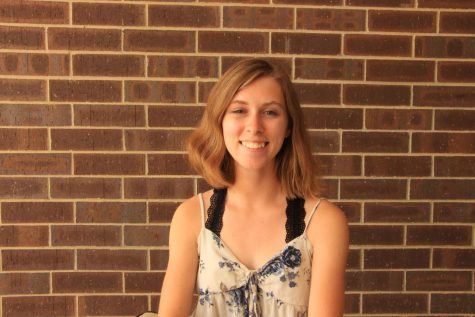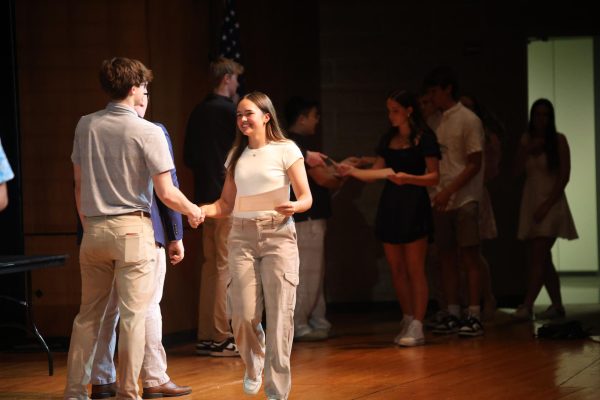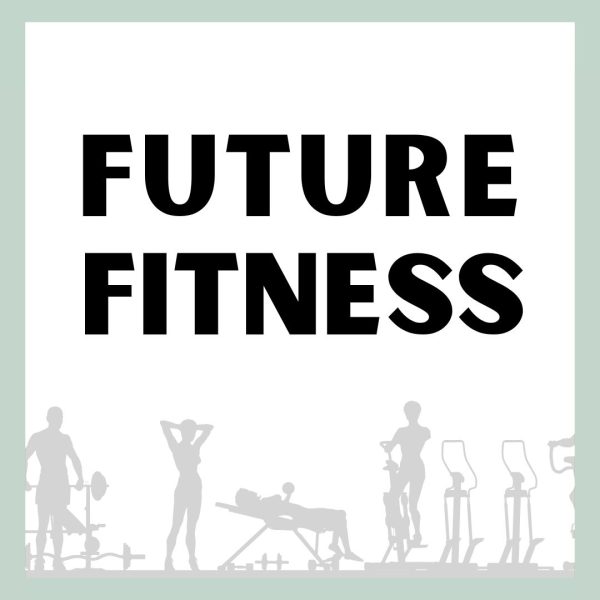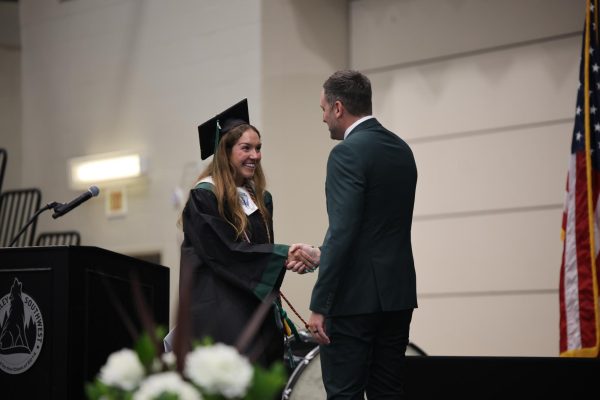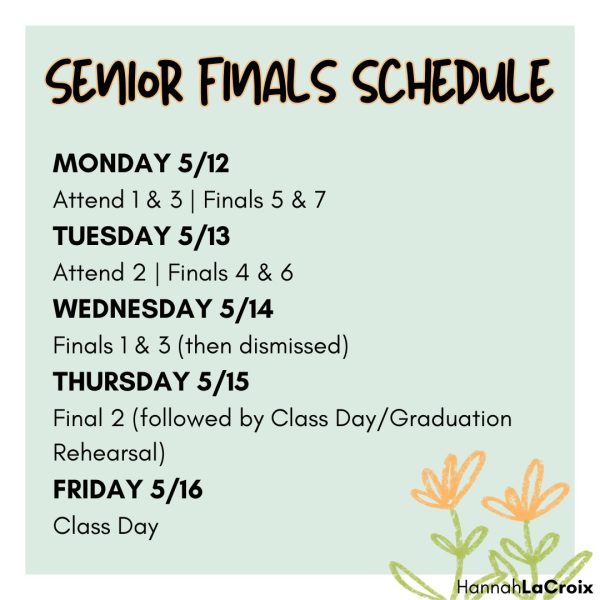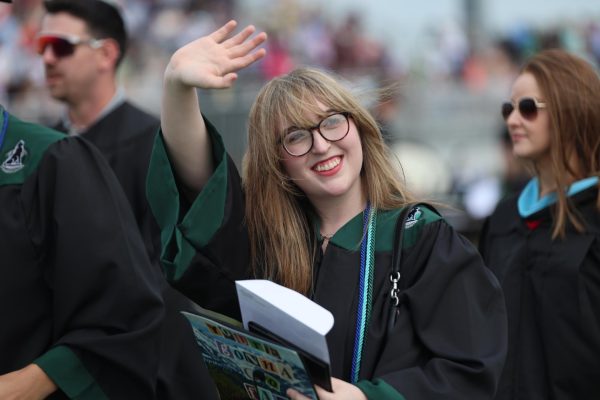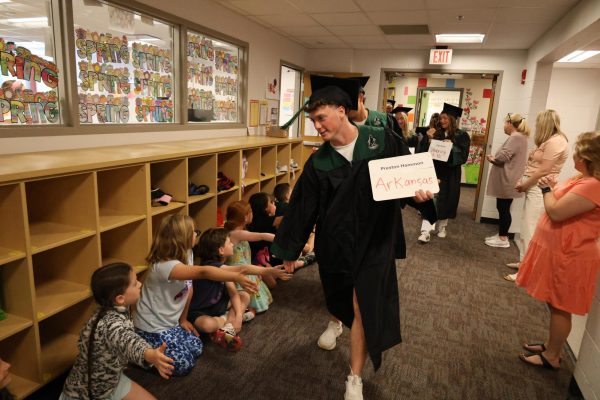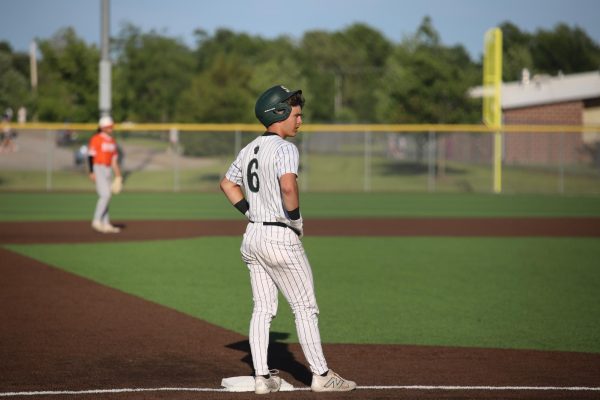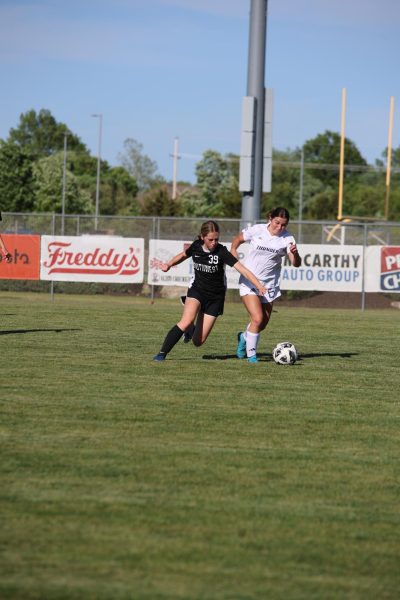Community supports counselor after stroke
As the last seconds tick off the clock and the buzzer goes off, the basketball teams exit the court, but the crowd remains seated, waiting patiently for the special event of the night. Wearing T-shirts adorned with hula dancers, the crowd stands and cheers as counselor Tom Hult enters in a wheelchair with his family.
On Feb. 10, the school came together to support Hult, who suffered a stroke last October. The night was devoted to raising money for him and his family while also increasing awareness about the signs of a stroke. The idea was pitched by junior Bailey Rindlisbacher, whose father works for a company that organizes similar events to educate people on the symptoms of strokes.
“I just thought it would be really cool to help our school cope, to understand stroke a little better,” Rindlisbacher said. “And take that program they had already started — my dad’s company — but adapt it more for our school and make it more personal. I think it was a super fun night that was also informative.”
Rindlisbacher said the goal of the night was education, using the acronym FAST — face, arms, speech, time — to help people remember the signs of a stroke and the importance of acting quickly. Betsy Bartlett, a basketball PTO member and longtime friend of Hult, helped organize the night and spread awareness. She said her hope was that through what happened to Hult, students and staff could understand the possibility of a stroke happening to “someone [they] know and love.”
“We were telling some of the kids, when we were giving them the cards, ‘This can happen to anybody, this can happen to your parents, these are signs to look for,’” Bartlett said. “If [Karen Hult] hadn’t acted so quick, he wouldn’t be here. So I hope Mr. Hult being there hit home a little bit.”
Counselor Shari Schaake said that before the stroke, Hult “didn’t know a stranger” and was always spreading positivity through his vibrant, upbeat personality and colorful Hawaiian shirts. Then, when the news of Hult’s stroke spread, she said it was devastating.
“The whole building was reeling, matter of fact, the whole district, he has so many friends,” Schaake said. “We were all very fearful that he wasn’t going to make it. It was really scary there for a while, and I’m just so thankful that right now he is still with us, and he’s on his road to recovery.”
Schaake said Hult’s recovery is a long, ongoing process, and that he’s come a lot further than anyone expected at this point.
“As far as I’m concerned, the fact that he’s up and walking around on his own is a miracle in itself,” Schaake said. “He’s still just as much fun to talk to; he’s still 100 percent Mr. Hult. It’s just he’s got some physical stuff he has to work through to be able to get back.”
Hult has been putting in a lot of hard work, Schaake said, to recover the abilities he lost due to the stroke. Currently, Hult said he is working on recovering his speech, strength and mobility, as well as improve cognitive reasoning, in order to return to work.
“Recovery is going slow but steady,” Hult said. “It’s like the tortoise and the hare. I’m the tortoise. I go down to a place called Sylvester Powell Jr. Community Center down in Mission, and I do some exercise down there. I’m able to interact with other stroke survivors and get some positive feedback and see where I can be.”
While Hult will not be able to return to his counseling position this year, he said the support he received from the Southwest community has been incredible and unfaltering, from hospital visits to fundraising to bringing him and his family dinners.
“[Southwest is] a great family atmosphere,” Hult said. “I mean, a lot of people say that — now I can look back and go, ‘Oh my gosh, yes, indeed.’”
Hult said he is very thankful for all of the support the Blue Valley community has provided, and the energy from the students is one of the things that helps keep him going and keep his spirits up throughout the long recovery. However, some aspects of his recuperation are more difficult than others.
“I have trouble seeing things in the left, and that’s frustrating because I miss a lot of information when I look at the left side, and there’s nothing that can be done about that,” Hult said. “I just have to learn to cope. Mentally, [the challenge] is just in physical and occupational therapy, there are some things they want me to do, I could do that before my stroke … I just can’t do it right now; I can’t put it all together.”
With these frustrations, Hult said it is important that people are patient and encouraging toward stroke survivors during a lengthy recovery process. The process is tough on caregivers as well, he said, which is one reason he has even more appreciation for his family.
“Don’t take things for granted,” Hult said. “Don’t take your health for granted because you never know when you’re going to get smacked upside the head. I’d say I appreciate more what I have going for me, and it makes you take a step back and realize what you really have.”


